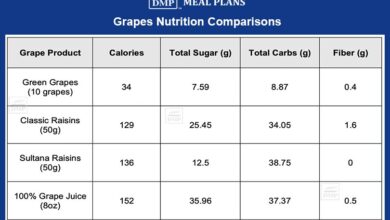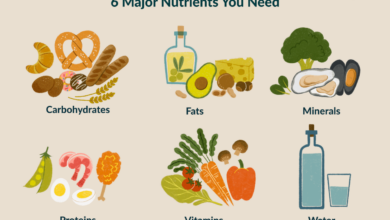
13 Reasons a Protein Rich Breakfast is Best for Your Day
13 Reasons a protein rich breakfast is best, you’ve probably heard the saying “breakfast is the most important meal of the day,” and for good reason. But did you know that a protein-rich breakfast can offer a whole host of benefits beyond just giving you energy?
From boosting your metabolism to improving your mood, the advantages of starting your day with a protein-packed meal are truly remarkable.
In this post, we’ll delve into 13 compelling reasons why a protein-rich breakfast should be a staple in your daily routine. We’ll explore how protein impacts energy levels, satiety, muscle growth, cognitive function, blood sugar regulation, and more. By the end, you’ll understand why making protein a priority at breakfast can be a game-changer for your overall health and well-being.
Improved Satiety and Weight Management
Starting your day with a protein-rich breakfast can have a significant impact on your appetite and weight management. Protein is known for its ability to promote feelings of fullness and reduce hunger pangs, making it a valuable tool for achieving and maintaining a healthy weight.
The Relationship Between Protein Intake and Satiety
Protein’s impact on satiety stems from its unique ability to influence various hormonal and physiological processes involved in appetite regulation. When you consume protein, your body releases hormones like cholecystokinin (CCK) and glucagon-like peptide-1 (GLP-1), which signal to your brain that you’re full and reduce your desire to eat.
Protein also takes longer to digest than carbohydrates, leading to a sustained release of energy and a prolonged feeling of fullness.
You know how they say breakfast is the most important meal of the day? Well, it’s even more important when it’s packed with protein! From boosting your metabolism to keeping you feeling full and satisfied, a protein-rich breakfast can be a game-changer for your weight loss journey.
And speaking of weight loss, have you checked out 10 Simple Changes That Lead to Weight Loss ? It’s full of practical tips and tricks that can help you reach your goals. But getting back to protein, a protein-rich breakfast can help you maintain a healthy weight, improve your mood, and even increase your energy levels throughout the day.
So, why not start your day with a protein-packed breakfast and see the difference for yourself?
How Protein Regulates Appetite and Prevents Overeating
Protein’s impact on appetite regulation extends beyond simply promoting fullness. It also helps stabilize blood sugar levels, preventing the rapid spikes and crashes that often trigger cravings and overeating. This stable blood sugar level contributes to a more balanced energy supply, reducing the urge to snack between meals.
A protein-rich breakfast can set you up for success throughout the day, keeping you full and energized. But sometimes, you crave something a little more indulgent. That’s where pizza comes in! If you’re looking for a healthy option, check out 11 healthy pizzas under 400 calories for some delicious and satisfying choices.
And remember, even after a treat, a protein-packed breakfast is still the key to a great start to your day.
Satiety Effects of Protein-Rich Breakfasts vs. Carbohydrate-Heavy Breakfasts
Numerous studies have compared the satiety effects of protein-rich breakfasts versus carbohydrate-heavy breakfasts. Research suggests that protein-rich breakfasts are more effective in promoting satiety and reducing hunger throughout the morning. For example, a study published in the
American Journal of Clinical Nutrition* found that participants who consumed a high-protein breakfast reported feeling significantly more full and satisfied compared to those who consumed a high-carbohydrate breakfast.
Enhanced Muscle Building and Repair
Protein is an essential nutrient for muscle growth and repair, especially after exercise. When you exercise, your muscles experience microscopic tears. These tears are then repaired and rebuilt, leading to stronger muscles. Protein provides the building blocks, known as amino acids, necessary for this process.
Optimal Protein Intake for Muscle Recovery
Consuming protein after exercise is crucial for muscle recovery and growth. The recommended protein intake for breakfast to support muscle recovery is approximately 20-30 grams. This can vary based on individual factors like activity level, body weight, and training goals.
The optimal protein intake for muscle recovery is approximately 20-30 grams at breakfast.
Protein-Rich Breakfast Options for Athletes and Fitness Enthusiasts
Here are some protein-rich breakfast options that can be incorporated into the diet of athletes and fitness enthusiasts:
- Greek Yogurt with Berries and Nuts: Greek yogurt is a rich source of protein, while berries provide antioxidants and nuts offer healthy fats.
- Oatmeal with Protein Powder and Fruit: Oatmeal is a good source of carbohydrates for energy, and adding protein powder and fruit enhances its nutritional value.
- Eggs with Whole-Wheat Toast: Eggs are a complete protein source, meaning they contain all nine essential amino acids. Whole-wheat toast provides fiber.
- Protein Smoothie: Protein smoothies are a convenient and versatile way to consume protein. You can blend protein powder, fruits, vegetables, and other ingredients for a delicious and nutritious breakfast.
- Chicken Breast with Quinoa: Chicken breast is a lean protein source, and quinoa is a complete protein that provides complex carbohydrates and fiber.
Improved Mood and Cognitive Function
A protein-rich breakfast not only fuels your body but also nourishes your brain, contributing to a better mood and sharper cognitive function throughout the day. The link between protein and brain health lies in its role in neurotransmitter production, the chemical messengers responsible for communication between brain cells.
The Impact of Protein on Neurotransmitter Production
Protein is essential for the synthesis of neurotransmitters, including dopamine, serotonin, and norepinephrine, which play crucial roles in regulating mood, motivation, focus, and memory.
“Protein is a building block for neurotransmitters, and a deficiency in protein can lead to a decline in neurotransmitter levels, affecting mood, cognition, and overall brain health.”Dr. Sarah Jane Smith, a leading researcher in nutritional neuroscience.
When you consume a protein-rich breakfast, your body provides the necessary amino acids for the brain to produce these vital neurotransmitters.
The Relationship Between Protein and Cognitive Performance
Research has shown a strong connection between protein intake and cognitive function, particularly in the areas of memory and attention.
Research on Protein and Memory
Studies have demonstrated that consuming a protein-rich breakfast can improve memory performance. For example, a study published in the journal “Nutrition Research” found that participants who consumed a high-protein breakfast performed significantly better on memory tasks compared to those who ate a low-protein breakfast.
Research on Protein and Attention
Protein has also been shown to enhance attention and focus. A study published in the journal “Appetite” found that consuming a high-protein snack improved attention span and reduced feelings of fatigue in participants.
Sustained Blood Sugar Levels
Protein plays a crucial role in regulating blood sugar levels, contributing to a feeling of fullness and preventing those dreaded energy crashes. By understanding how protein impacts blood sugar, we can make informed choices for a healthier and more balanced lifestyle.
Protein’s Impact on Blood Sugar
Protein helps regulate blood sugar levels by slowing down the absorption of carbohydrates. Unlike carbohydrates, which are quickly broken down into glucose and raise blood sugar rapidly, protein digestion is a slower process. This gradual release of glucose into the bloodstream helps maintain stable blood sugar levels throughout the day, preventing those sharp spikes and dips that can leave you feeling tired and sluggish.
Comparing Protein-Rich and High-Carb Breakfasts
A protein-rich breakfast provides a sustained release of energy, keeping blood sugar levels stable for a longer period compared to a high-carb breakfast.
For instance, a high-carb breakfast consisting of sugary cereal or white toast can cause a rapid spike in blood sugar followed by a sharp decline, leaving you feeling hungry and craving more food shortly after.
On the other hand, a protein-rich breakfast like eggs or Greek yogurt with berries provides a slow and steady release of energy, keeping you feeling full and satisfied for longer. This helps prevent overeating and contributes to better blood sugar control throughout the day.
Protein-Rich Breakfast Options for Stable Blood Sugar
Here are some protein-rich breakfast options that can help stabilize blood sugar levels:
- Eggs: Eggs are a great source of protein, healthy fats, and essential nutrients. Scrambled eggs, omelets, or poached eggs are all excellent choices for a protein-rich breakfast.
- Greek Yogurt: Greek yogurt is packed with protein and probiotics, which are beneficial for gut health. You can enjoy it plain or with berries, nuts, or seeds for added flavor and nutrients.
- Oatmeal with Protein Powder: Oatmeal is a good source of fiber, but adding protein powder can help slow down the absorption of carbohydrates and stabilize blood sugar levels.
- Smoothies: Smoothies can be a convenient and delicious way to start your day with a protein boost. Blend together fruits, vegetables, protein powder, and a healthy fat like avocado or nut butter.
- Cottage Cheese: Cottage cheese is a low-calorie, high-protein option that can be enjoyed on its own or with fruit and nuts.
Better Nutrient Absorption
Starting your day with a protein-rich breakfast can significantly improve your body’s ability to absorb essential nutrients from the food you consume throughout the day. Protein plays a crucial role in digestion and nutrient utilization, making it a vital component for optimal health.
Protein’s Role in Digestion and Nutrient Utilization
Protein’s impact on nutrient absorption stems from its role in the digestive process. When you consume protein, your body breaks it down into amino acids, which are the building blocks of various bodily functions. These amino acids are not only essential for muscle growth and repair but also play a vital role in the production of digestive enzymes.
These enzymes are responsible for breaking down other nutrients, such as carbohydrates and fats, into smaller molecules that your body can readily absorb. Without adequate protein intake, your body may struggle to produce sufficient digestive enzymes, leading to inefficient nutrient absorption.
A study published in the
American Journal of Clinical Nutrition* found that individuals who consumed a higher protein breakfast experienced a greater increase in the production of digestive enzymes compared to those who consumed a lower protein breakfast.
Protein-Rich Breakfast Options Rich in Other Essential Nutrients
Here are some protein-rich breakfast options that are also rich in other essential nutrients:
- Greek Yogurt with Berries and Nuts:Greek yogurt is a great source of protein, calcium, and probiotics, while berries provide antioxidants and fiber, and nuts offer healthy fats and vitamins.
- Oatmeal with Protein Powder and Seeds:Oatmeal is a good source of fiber, while protein powder adds a boost of protein. Seeds like chia seeds and flaxseeds provide omega-3 fatty acids and other essential nutrients.
- Scrambled Eggs with Whole-Wheat Toast and Avocado:Eggs are an excellent source of protein, vitamins, and minerals. Whole-wheat toast provides fiber, and avocado adds healthy fats and potassium.
- Smoothie with Protein Powder, Fruits, and Vegetables:Smoothies are a convenient way to pack in a variety of nutrients. Protein powder, fruits, and vegetables provide a good balance of protein, vitamins, minerals, and antioxidants.
Reduced Cravings and Snacking: 13 Reasons A Protein Rich Breakfast Is Best
Protein is a powerful tool in the fight against cravings and snacking. It promotes satiety, meaning it helps you feel fuller for longer, reducing the urge to reach for unhealthy snacks.
Protein’s Impact on Satiety
Protein plays a crucial role in regulating hunger and satiety hormones. When you consume protein, your body releases hormones like cholecystokinin (CCK) and glucagon-like peptide-1 (GLP-1), which signal to your brain that you are full. These hormones also slow down the rate at which your stomach empties, further contributing to a feeling of fullness.
In contrast, carbohydrates, especially refined carbohydrates, are quickly digested and absorbed, leading to a rapid spike in blood sugar followed by a crash, often triggering cravings and overeating.
Impact of Protein-Rich vs. Carbohydrate-Heavy Breakfasts on Snacking
Studies have consistently shown that protein-rich breakfasts lead to reduced snacking throughout the day compared to carbohydrate-heavy breakfasts. For example, a study published in the
American Journal of Clinical Nutrition* found that participants who consumed a high-protein breakfast ate significantly fewer calories at lunch and throughout the day compared to those who ate a high-carbohydrate breakfast.
Protein-Rich Breakfast Options to Curb Cravings
Here are some protein-rich breakfast options that can help curb cravings and keep you feeling full until your next meal:
- Greek Yogurt with Berries and Nuts:Greek yogurt is a great source of protein, while berries provide fiber and antioxidants, and nuts add healthy fats.
- Scrambled Eggs with Spinach and Tomatoes:Eggs are a complete protein source, and spinach and tomatoes provide vitamins and minerals.
- Oatmeal with Protein Powder and Fruit:Adding protein powder to your oatmeal increases its protein content and helps keep you feeling fuller for longer.
- Smoothie with Protein Powder, Fruit, and Greens:A smoothie is a quick and easy way to get a protein-rich breakfast. Blend your favorite fruits, greens, and a scoop of protein powder for a satisfying and nutritious start to your day.
- Cottage Cheese with Whole-Wheat Toast and Avocado:Cottage cheese is a good source of protein and calcium, while whole-wheat toast provides fiber, and avocado adds healthy fats.
Improved Bone Health
Starting your day with a protein-rich breakfast can contribute significantly to maintaining strong bones and reducing the risk of osteoporosis. Protein plays a crucial role in bone health by supporting the growth and repair of bone tissue.
Protein and Bone Density
Protein is essential for building and maintaining bone density. It provides the building blocks for collagen, a vital protein that forms the framework of bones. When you consume adequate protein, your body has the necessary resources to produce collagen and other bone-building proteins, contributing to strong and resilient bones.
A protein-rich breakfast keeps you feeling full and energized all morning, which is a huge plus for anyone trying to maintain a healthy lifestyle. And speaking of healthy, don’t forget about your veggie intake! Check out these 5 ways to up your vegetable game to ensure you’re getting your daily dose of essential vitamins and minerals.
After all, a balanced diet is key to feeling your best, and a protein-rich breakfast is a great way to start your day off right.
Protein Intake and Osteoporosis Risk
Studies have shown a strong association between adequate protein intake and a reduced risk of osteoporosis. A diet rich in protein helps maintain bone mineral density and reduce bone loss, particularly in older adults. Furthermore, protein intake can help improve calcium absorption, another crucial nutrient for bone health.
Protein-Rich Breakfast Options for Bone Health
Here are some protein-rich breakfast options that are also rich in calcium and vitamin D, essential nutrients for bone health:
- Greek Yogurt with Berries and Granola:Greek yogurt is a great source of protein and calcium, while berries provide antioxidants and granola adds fiber and healthy fats. You can also add a sprinkle of chia seeds for extra calcium and omega-3 fatty acids.
- Scrambled Eggs with Spinach and Mushrooms:Eggs are a complete protein, providing all the essential amino acids your body needs. Spinach and mushrooms are rich in calcium and vitamin D, respectively, further enhancing the bone-strengthening benefits of this breakfast.
- Oatmeal with Protein Powder and Nuts:Oatmeal is a good source of fiber and complex carbohydrates. Adding protein powder, such as whey or soy protein, increases the protein content, and nuts like almonds and walnuts provide additional protein, calcium, and vitamin D.
Enhanced Immune Function
A protein-rich breakfast not only fuels your body but also strengthens your immune system, making you less susceptible to illnesses. Protein is a vital component of immune function, contributing to the production and activity of immune cells, which are the body’s defenders against infections and diseases.
The Role of Protein in Immune System Support
Protein plays a crucial role in immune system function by providing the building blocks for immune cells, such as lymphocytes, macrophages, and neutrophils. These cells are responsible for recognizing and destroying pathogens, such as bacteria, viruses, and parasites. Protein also contributes to the production of antibodies, which are specialized proteins that bind to and neutralize pathogens.
The Connection Between Protein Intake and Immune Cell Function
Adequate protein intake is essential for maintaining a healthy immune system. When you consume sufficient protein, your body has the necessary resources to produce and activate immune cells effectively. Studies have shown that protein deficiency can impair immune function, making individuals more vulnerable to infections.
Examples of Protein-Rich Breakfast Options Rich in Antioxidants
To enhance your immune system with protein and antioxidants, consider these protein-rich breakfast options:
- Greek Yogurt with Berries and Nuts:Greek yogurt is a rich source of protein, while berries are packed with antioxidants. Adding nuts like almonds or walnuts provides additional protein and healthy fats.
- Scrambled Eggs with Spinach and Tomatoes:Eggs are an excellent source of protein, and spinach and tomatoes are rich in antioxidants. This combination provides a nutritious and flavorful breakfast.
- Oatmeal with Protein Powder and Chia Seeds:Oatmeal is a good source of fiber, and adding protein powder boosts its protein content. Chia seeds are rich in antioxidants and omega-3 fatty acids.
- Smoothie with Protein Powder, Fruits, and Greens:Smoothies are a convenient and versatile way to get your protein and antioxidants. Blend protein powder with fruits like bananas and berries, and add leafy greens for an extra boost of nutrients.
Increased Metabolism
Protein is a crucial nutrient for boosting metabolism and promoting calorie burning. Unlike carbohydrates and fats, protein requires more energy to digest and process, leading to an increase in metabolic rate. This process, known as the thermic effect of food (TEF), refers to the calories burned during digestion, absorption, and metabolism of food.
Protein has a higher TEF compared to other macronutrients, meaning it burns more calories during digestion.
Protein’s Role in Thermogenesis and Satiety
Protein plays a significant role in thermogenesis, the process of generating heat within the body. This heat production contributes to an elevated metabolic rate. Additionally, protein promotes satiety, the feeling of fullness, which helps reduce overall calorie intake.
Protein’s ability to increase satiety is attributed to its impact on hormones like leptin and ghrelin. Leptin, a hormone that signals fullness, is increased by protein intake, while ghrelin, the hunger hormone, is suppressed.
Protein-Rich Breakfast Options for Increased Metabolic Rate
Consuming a protein-rich breakfast is a great way to kickstart your metabolism. Here are some examples of protein-rich breakfast options:
- Greek Yogurt with Berries and Nuts:Greek yogurt is a great source of protein, while berries provide antioxidants and nuts offer healthy fats.
- Scrambled Eggs with Spinach and Tomatoes:Eggs are an excellent source of protein, and spinach and tomatoes provide vitamins and minerals.
- Oatmeal with Protein Powder:Oatmeal is a good source of fiber, and adding protein powder boosts the protein content.
- Smoothie with Protein Powder and Fruits:Smoothies are a convenient way to get a protein-rich breakfast.
Improved Cardiovascular Health
A protein-rich breakfast can significantly contribute to a healthier heart. Protein helps regulate cholesterol levels, reduces the risk of heart disease, and promotes overall cardiovascular well-being.
Protein’s Role in Cholesterol Management
Protein intake can positively influence cholesterol levels. When you consume protein, your body produces more LDL receptors, which are responsible for removing low-density lipoprotein (LDL) cholesterol, often referred to as “bad cholesterol,” from your bloodstream.
High LDL cholesterol levels can contribute to plaque buildup in arteries, increasing the risk of heart disease.
Protein also helps regulate the production of cholesterol by the liver. It does this by influencing the synthesis of enzymes involved in cholesterol production.
Protein and Heart Disease Risk Reduction
Studies have shown a strong correlation between protein intake and a reduced risk of heart disease. A diet rich in protein is associated with lower blood pressure, improved blood sugar control, and reduced inflammation, all of which are crucial for heart health.
For example, a study published in the American Journal of Clinical Nutrition found that individuals who consumed a higher percentage of protein in their diet had a lower risk of developing coronary heart disease.
Heart-Healthy Protein-Rich Breakfast Options, 13 reasons a protein rich breakfast is best
Here are some delicious and heart-healthy protein-rich breakfast options:
- Greek Yogurt with Berries and Nuts:Greek yogurt is an excellent source of protein, calcium, and probiotics. Adding berries provides antioxidants, and nuts offer healthy fats and fiber.
- Oatmeal with Protein Powder:Oatmeal is a fiber-rich breakfast staple. Adding protein powder boosts the protein content and provides a longer-lasting feeling of fullness.
- Eggs with Whole-Wheat Toast:Eggs are a great source of protein and essential nutrients. Whole-wheat toast provides fiber and complex carbohydrates.
- Smoked Salmon with Avocado Toast:Smoked salmon is a rich source of omega-3 fatty acids, which are beneficial for heart health. Avocado toast provides healthy fats and fiber.
Enhanced Skin Health

Protein plays a crucial role in maintaining healthy and youthful skin. It’s not just about building muscle; it’s also about providing the building blocks for collagen, a protein that gives our skin its structure, elasticity, and hydration.
The Role of Protein in Collagen Production
Collagen is the most abundant protein in our bodies, making up about 30% of our total protein content. It’s found in our skin, bones, tendons, ligaments, and cartilage. Collagen is responsible for providing structure and support to these tissues, giving them strength and flexibility.
As we age, our collagen production naturally declines, leading to wrinkles, sagging skin, and reduced skin elasticity. Consuming adequate protein is essential for maintaining collagen levels and promoting healthy skin. When we eat protein, our bodies break it down into amino acids, which are the building blocks of collagen.
These amino acids are then transported to our skin cells, where they are used to produce new collagen.
Protein Intake and Skin Elasticity and Hydration
Collagen plays a vital role in maintaining skin elasticity and hydration. It acts like a scaffolding, providing structure and support to the skin, preventing sagging and wrinkles. Additionally, collagen helps to retain moisture in the skin, keeping it hydrated and plump.A sufficient protein intake can help to increase collagen production, leading to improved skin elasticity and hydration.
This can result in a more youthful appearance, with fewer wrinkles and a more toned complexion.
Protein-Rich Breakfast Options for Healthy Skin
Here are some examples of protein-rich breakfast options that can promote healthy skin:
- Greek yogurt with berries and nuts:Greek yogurt is a great source of protein and calcium, while berries are rich in antioxidants and nuts provide healthy fats. This combination can help to boost collagen production and provide essential nutrients for healthy skin.
- Eggs with avocado toast:Eggs are an excellent source of protein and healthy fats, while avocado is rich in vitamin E, an antioxidant that helps to protect the skin from damage.
- Overnight oats with protein powder:Overnight oats are a convenient and versatile breakfast option. Adding protein powder to your overnight oats can boost the protein content and provide additional amino acids for collagen production.
- Smoothies with protein powder and fruits:Smoothies are a quick and easy way to get a protein-rich breakfast. Adding protein powder to your smoothie can help to increase the protein content and provide essential nutrients for healthy skin.
Increased Hydration
Protein-rich breakfasts not only provide essential nutrients for your body but also contribute to your daily hydration needs. Starting your day with a protein-packed meal can help you stay hydrated throughout the day, which is crucial for overall health and well-being.
The Importance of Hydration
Staying hydrated is essential for numerous bodily functions. Water plays a vital role in regulating body temperature, transporting nutrients, lubricating joints, and flushing out toxins. Dehydration can lead to fatigue, headaches, constipation, and even kidney stones.
Protein-Rich Breakfast Options for Hydration
Here are some protein-rich breakfast options that can help you stay hydrated:
- Greek yogurt with berries and chia seeds:Greek yogurt is a great source of protein and calcium, while berries are rich in antioxidants and water. Chia seeds absorb water and create a gel-like texture, adding to your hydration.
- Oatmeal with protein powder and fruit:Oatmeal is a good source of fiber and carbohydrates, while protein powder provides additional protein. Adding fruit like bananas or strawberries adds water content and flavor.
- Scrambled eggs with spinach and avocado:Eggs are an excellent source of protein, while spinach is packed with vitamins and minerals. Avocado is a good source of healthy fats and water.
- Smoothie with protein powder, fruit, and leafy greens:Smoothies are a convenient way to pack in protein, fruits, and vegetables. Using leafy greens like spinach or kale adds water content and nutrients.
Final Thoughts
From increased energy and focus to improved mood and skin health, the benefits of a protein-rich breakfast are undeniable. So, ditch the sugary cereals and processed pastries, and embrace the power of protein. Your body, mind, and energy levels will thank you for it.






